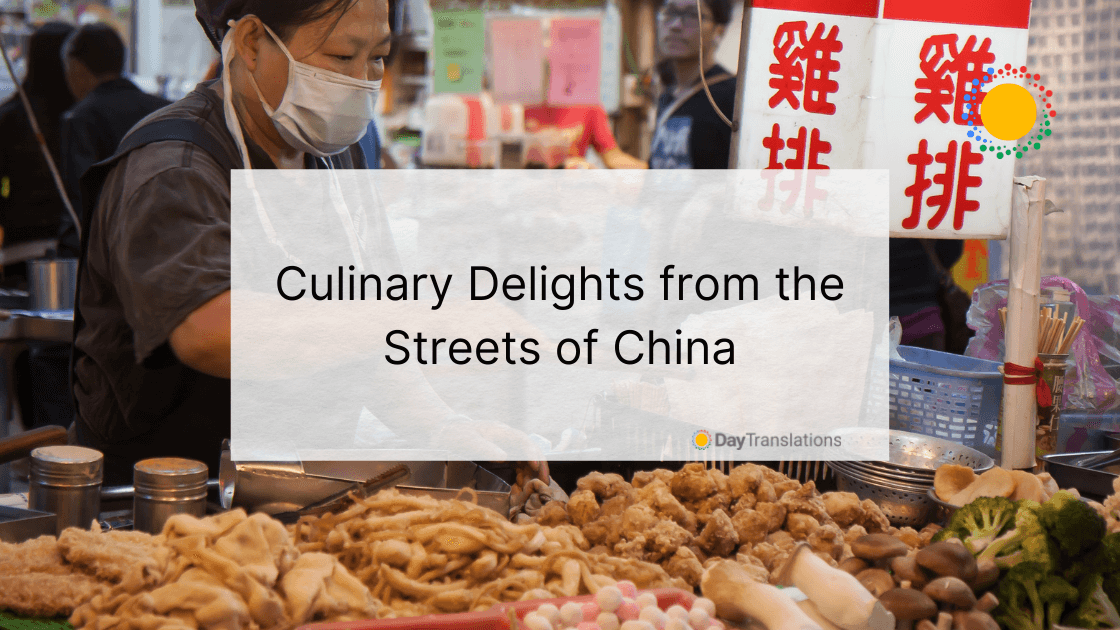Each region in China has its own food specialties, and while it would be very difficult to have a taste of each of these specialties which may not even be available in the finest restaurants, you have an alternative – the culinary delights from the street food vendors in China.
China has been known for a long time for having a variety of cuisine that suits almost everyone’s taste buds and the range of street food everywhere you go in China is a revelation. The local Chinese government units are trying to cut down on the practice of street food vending or xiaochi to alleviate problems such as traffic congestion and safety issues. While many of the vendors were able to open shops and restaurants, and street food is available indoors, you are still likely to find street food vendors in many street corners. You can have a great time tasting these “culinary delights” if you are adventurous and not squeamish, sate your hunger and save some cash in the process.
Jianbing or Chinese Crepes
This is a great way to start your day, as Jianbing can be your breakfast. The crepe is made by pouring batter onto a hot skillet and evened out to form a thin pancake. Egg is cracked on top of the cooking batter, spread with a dash of rich chili sauce, sprinkled with chopped scallions and a lettuce leaf. Meat and other flavorings can be added. The pancake is folded into a square and served hot.
Rou Jia Mo (Chinese Hamburger)
This is a hamburger with a difference. It used to be a specialty in Xian but is now popular all over China. Chinese hamburger is a pitta bun stuffed with roughly chopped or sliced stewed meat with a dash of chili paste and a drizzle of meat gravy. Each vendor blends a secret recipe for the spiced mix, which can be a made of Sichuan pepper (very hot), cumin and chili.
Guōtiē (Fried Pot-Stick Dumplings)
If you are in Shanghai, this is one street food that you must try. The fried dumplings are crispy on the outside and juicy on the inside. These are dumplings made with ground pork seasoned with sesame oil and salt, crushed garlic, shaoxing wine and ginger, wrapped in tougher and thicker skin. Cooking is done in three stages. First the dumplings are gently fried in oil, then water is added and the circular pot covered to steam the dumplings. Finally, oil is again added to continue the frying, browning only the bottom of the dumplings. The dumplings are richly flavored and can be oily. If you do not want too much oil in your food, you can dip the guōtiē in dark vinegar.
Jiaozi (Dumplings)
Most people who have been to Chinatown or a Chinese restaurant/take out will be familiar with steamed dough dumplings filled with meat. Most of them have thick skin. In the streets of China, the dumplings being sold have thicker skin, yet filled with more meat and/or vegetables. You’ll see vendors with their layers of bamboo steamers lining up the streets anytime of the day. Jiaozi is a perfect food to go and quite easy to eat.
Shao Kao (Street Barbecue)
When you see haze of smoke in any street corner in China, you’re likely to find street vendors selling steamed buns, jiaozi or busily barbecuing all sorts of things, from various meats and seafood to vegetables and mushrooms and even tofu. Buying street barbecue is a great way to have several food in one pile, cooked to lip-smacking goodness right in front of you. You can choose the type of seasoning you want as well.
Check out where the long lines of people are and you can be sure that whatever the Chinese street food vendor is cooking is good. Long queues, just like canteens where most taxi drivers eat mean that the food is great, so give it a try.
Beyond the Plate: The Culinary Experience
When seeking out the best street food, follow the crowds. Long lines often indicate exceptional food, much like the canteens frequented by taxi drivers. Don’t be afraid to try something new and embrace the authentic flavors of Chinese street cuisine.
For those looking to deepen their culinary knowledge and perhaps even pursue a professional path in the culinary arts, exploring the options available at culinary schools can provide a structured foundation. While street food offers an immediate and visceral experience, culinary schools provide in-depth training on techniques, ingredients, and the history of various cuisines, including Chinese. These institutions can help to hone the skills necessary to create the amazing dishes that are found on the streets of china, and in restaurants.
The streets of China offer a culinary adventure unlike any other, a vibrant tapestry of flavors and aromas that captures the essence of the nation’s rich food culture. From savory crepes to juicy dumplings and smoky barbecued delights, these “culinary delights” are a testament to the ingenuity and passion of Chinese street food vendors.












Sorry, the comment form is closed at this time.